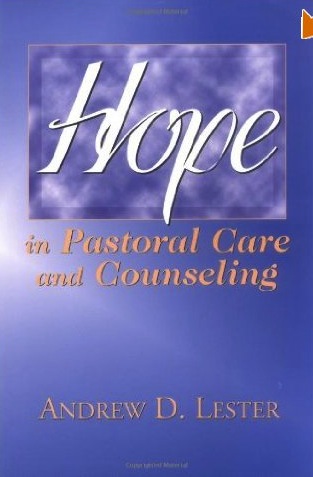Last week I had the pleasure and joy of listening to a small group of pastors tell me and each other about their lives, their work and how they’ve come to understand the pastoral life. It is part of my present work to listen deeply to the learning moments and pastoral
wisdom of ministers at various stages of their lives and careers. Part of my epistemological commitment (that is my convictions about how we know what we know) is that stories are central for understanding the subtly and complexity of pastoral work and wisdom.
Storytelling . . .
In 2001, as I was working my way through doctoral courses in Religion, Psychology and Culture at Vanderbilt, I read pastoral theologian, Andy Lester’s book, Hope in Pastoral Care and Counseling. In that book he articulates several important ideas including the notion of “future stories.” The stories we tell ourselves about the future can have as much impact on us in the present as do all the stories we tell about our pasts.
 For instance right now I’m carrying around a host of future stories about everything from what time I’ll turn out the lights tonight to what movie I might see this weekend, to where I’ll be teaching and what I will be researching 20 years from now. The power of future stories seems obvious when you try it on. But it is a significant challenge to the psychological traditions which mostly focus on the past as the main or only key to understanding personal identity or behavior in the present.
For instance right now I’m carrying around a host of future stories about everything from what time I’ll turn out the lights tonight to what movie I might see this weekend, to where I’ll be teaching and what I will be researching 20 years from now. The power of future stories seems obvious when you try it on. But it is a significant challenge to the psychological traditions which mostly focus on the past as the main or only key to understanding personal identity or behavior in the present.
Since reading Andy’s book, I’ve also carried around a formulation about personal identity that is easy to remember and keeps paying off with deeper and deeper meanings. The saying I’ve used to summarize a significant portion of his argument is this:
I am the stories I tell to myself about myself.
We are more than stories of course. We are also bodies and minds, relationships and socially constructed creatures living in particular places and times. But stories do shape and hold an awful lot of that together. Just think about the power of stories to make a point, show a subtlety, communicate a feeling, or portray a moral good or evil. Stories do this better than arguments, formulas, or statements of belief.
Last week I had the pleasure and joy of listening to a small group of pastors tell me and each other about their lives, their work and how they’ve come to live the pastoral life. It is part of my present work to listen deeply to the learning moments and pastoral wisdom of ministers at various stages of their lives and careers. Part of my epistemological commitment (that is my conviction about how we know what we know) is that stories are central for understanding the subtlety and complexity of pastoral work and wisdom.
In my way of thinking, stories are central for understanding the subtlety and complexity of most aspects of life. Thanks be to God for the power to tell stories and know ourselves.



